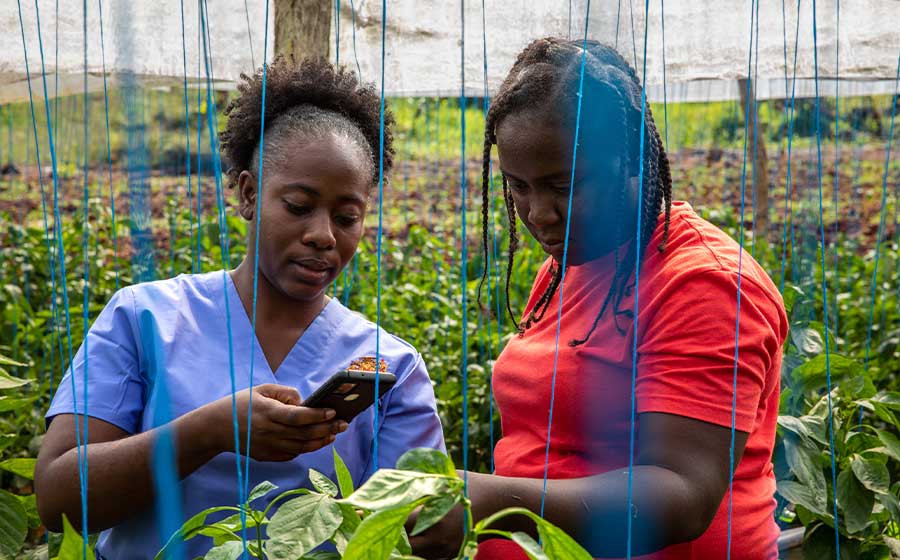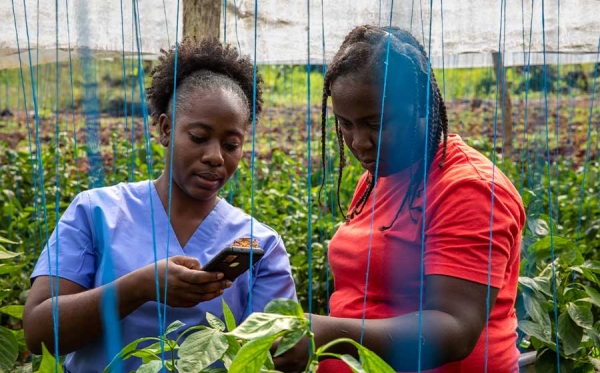Despite definite advances (explored below), evidence of inequality and impediments to progress can still be seen across business and especially agriculture, which is the field in which I am privileged to work.
The Boys’ Club
It’s well known in our region that Jamaica was the first English-speaking Caribbean country to achieve universal adult suffrage and grant women the right to be elected to Parliament. Portia Simpson-Miller, our country’s first female Prime Minister, stands out as a notable figure, having served as the Prime Minister of Jamaica twice, first from March 2006 to September 2007 and again from January 2012 to March 2016. Her leadership exemplifies the significant role women have played in Jamaican politics.
But while many women have taken inspiration from her example, we do still need to ask ourselves: How Can it be the case that only one Jamaican woman in our history has been able to lead the nation? It’s hard to avoid the impression of the political scene being a patriarchal ‘boys club’, as is often suggested. This question echoes sentiments shared by many witnessing a persistent gender disparity in leadership roles across wider society, including business within the agriculture sector.
In the agricultural sector, it has traditionally been men dominating the productive roles on farms, while women have been relegated to reproductive roles within the household. In developing countries, studies demonstrate that roughly half of agricultural labour is performed by women, but that they produce 20-30% less than their male counterparts, often due to an inability to access fertilisers and other inputs. We could also mention that only 25% of agricultural scientists worldwide are estimated to be women.
In my experience, and that of my colleagues, the world of agriculture is still very much a male-dominated sector.

The Case for Female Leadership
In the realm of agricultural technology, in particular, female leadership is not just desirable but essential. Studies indicate that companies led by women often experience better financial returns and generate more innovative solutions. This inclusivity leads to breakthroughs that might not occur in a more homogenous setting, paving the way for sustainable practices and potential increases in crop yields.
But despite the potential benefits of female leadership, cultural norms and gender bias often relegate women to lower-paid positions. Access to resources such as land, credit, and technology is a constant struggle, hindering efficiency and contribution to food security.
In the current agtech landscape, there’s a clear male dominance in farming operations and incubator programs. Men are more likely to be seen and heard in educational opportunities and leadership roles. Nevertheless, inspiring testimonies and case studies showcase the potential for women’s leadership and innovation in agtech.
Recognising Achievement
But there are some rays of light. According to many studies, the Caribbean has shown significant progress in these areas not only in reference to the past, but in comparison with similar countries and regions.
In fact, the International Labor Organization has described the Caribbean as a “world leader” in terms of the share of women managers, with an overall rate of 40% women managers in 8 out of 11 Caribbean countries surveyed. At the time, Jamaica reported the highest proportion of women managers in the world at 59 per cent.
Jamaica has also implemented legislation to increase women’s political representation, recently adopting a policy requiring that at least 30% of officials on public boards be of “either” sex, which in practice ensures a boost to women’s representation in such bodies.
Yet such figures and measures can obscure deeper inequalities: the same ILO report noted that, “As the seniority level rises…the share of women managers decreases…Moreover, the proportion of companies reporting that they had no women managers grew at each stage of seniority, from an average of 16 per cent at junior levels to 34 per cent at the top executive level.”
Positive Steps
To empower women in Jamaican public life, and particularly in the agricultural sector, policy changes must focus on gender equality. Such policies should ensure equal rights to land and resources, access to credit, and opportunities for education and leadership. Educational programs tailored to the specific needs of women in agtech are crucial, along with community support systems providing networks and platforms to voice concerns and solutions.
Examples of impactful measures include the Jamaican Agricultural Society (JAS)’s ‘Association of Phenomenal Women’, which provides advocacy services and mentorship to women making a difference in agriculture in our country. Similarly, the Women’s Entrepreneurship Support (WES) Project provides support to women in a diverse range of businesses, and in the past has distributed stipends of J$100,000 to help women working in agriculture to scale their businesses.
But more than this, we have to change attitudes and deeply ingrained cultural stereotypes. This is a deeper challenge that will take place over many years. However, working together as a society - helped along, no doubt, by positive initiatives like International Women’s Day - one day I believe we can still get there.


